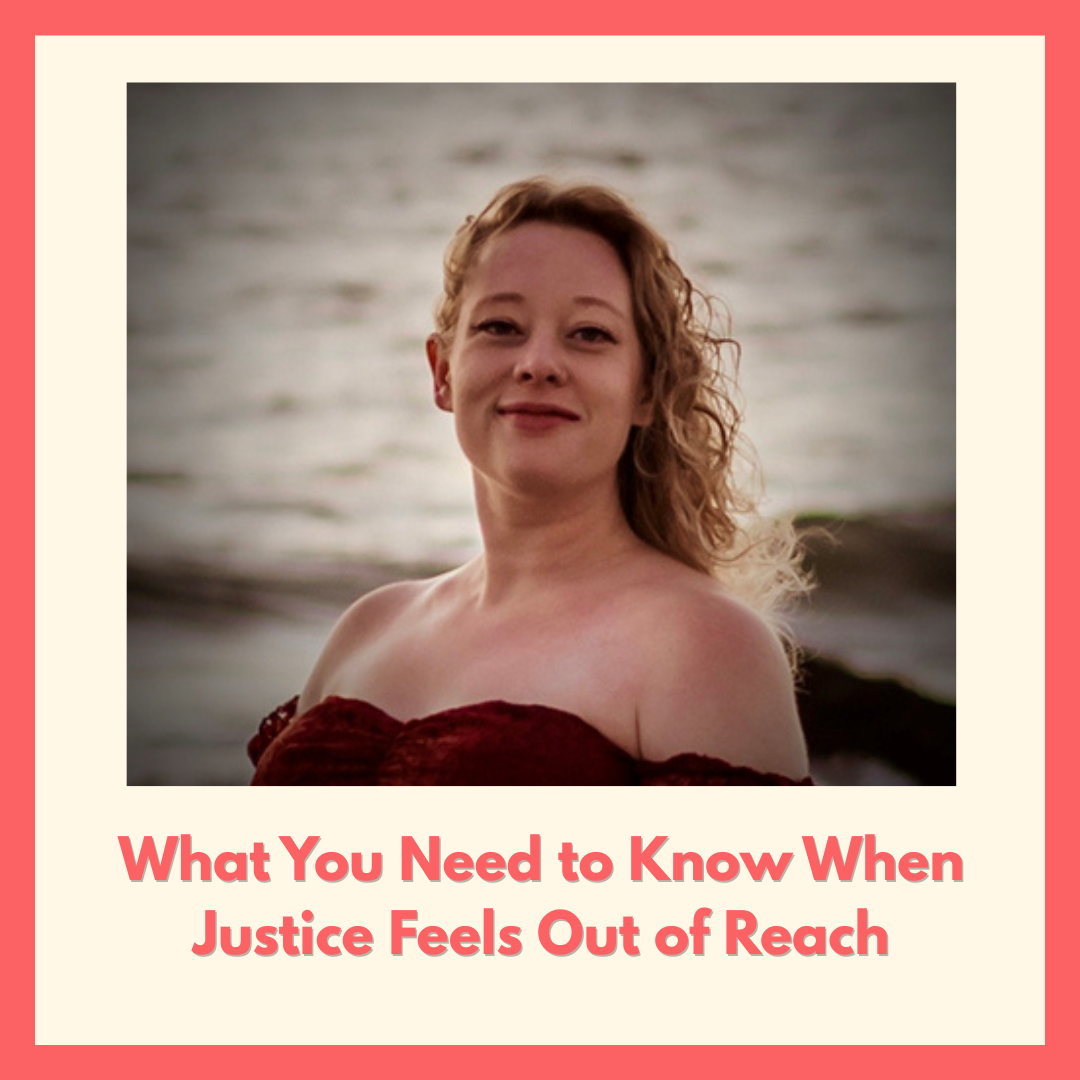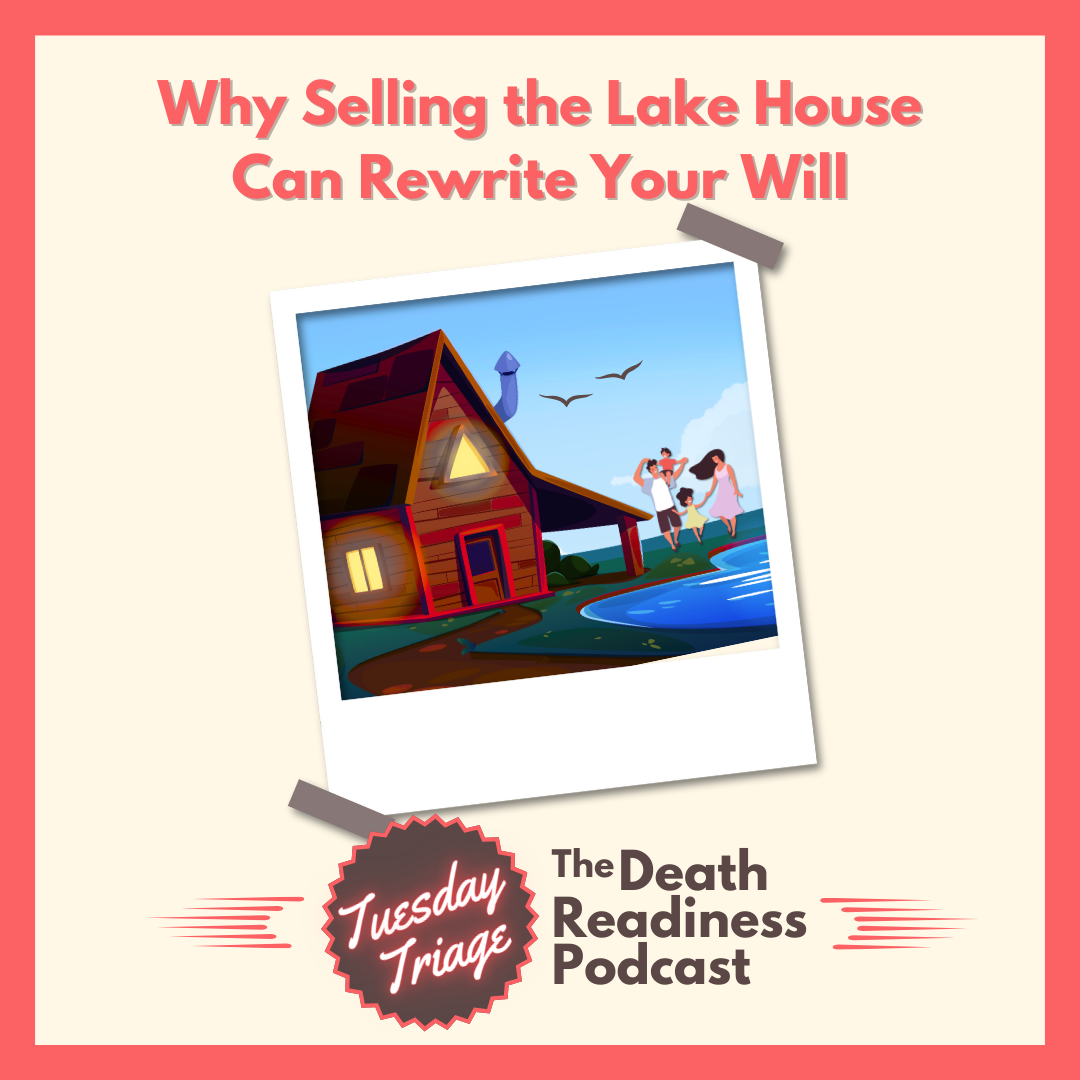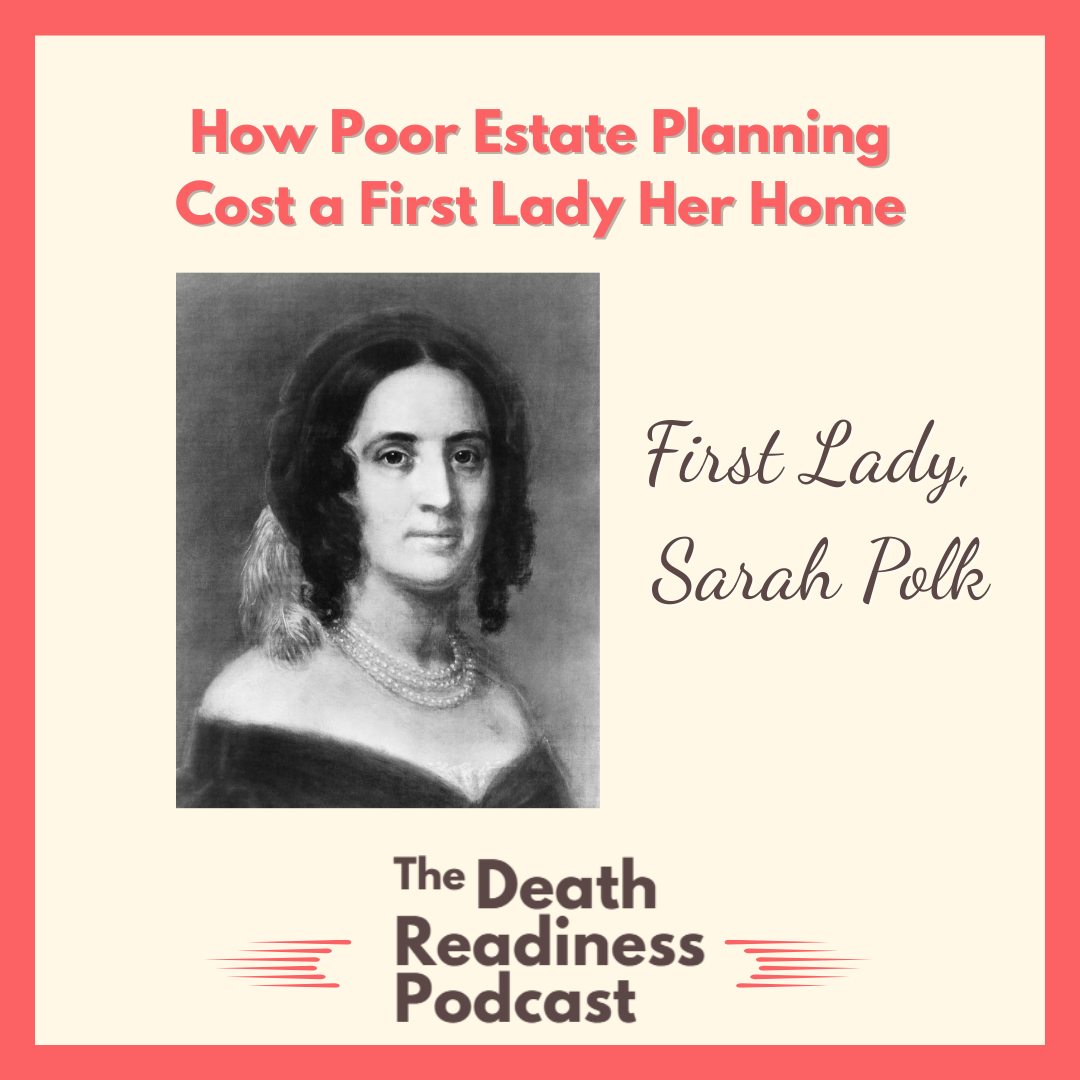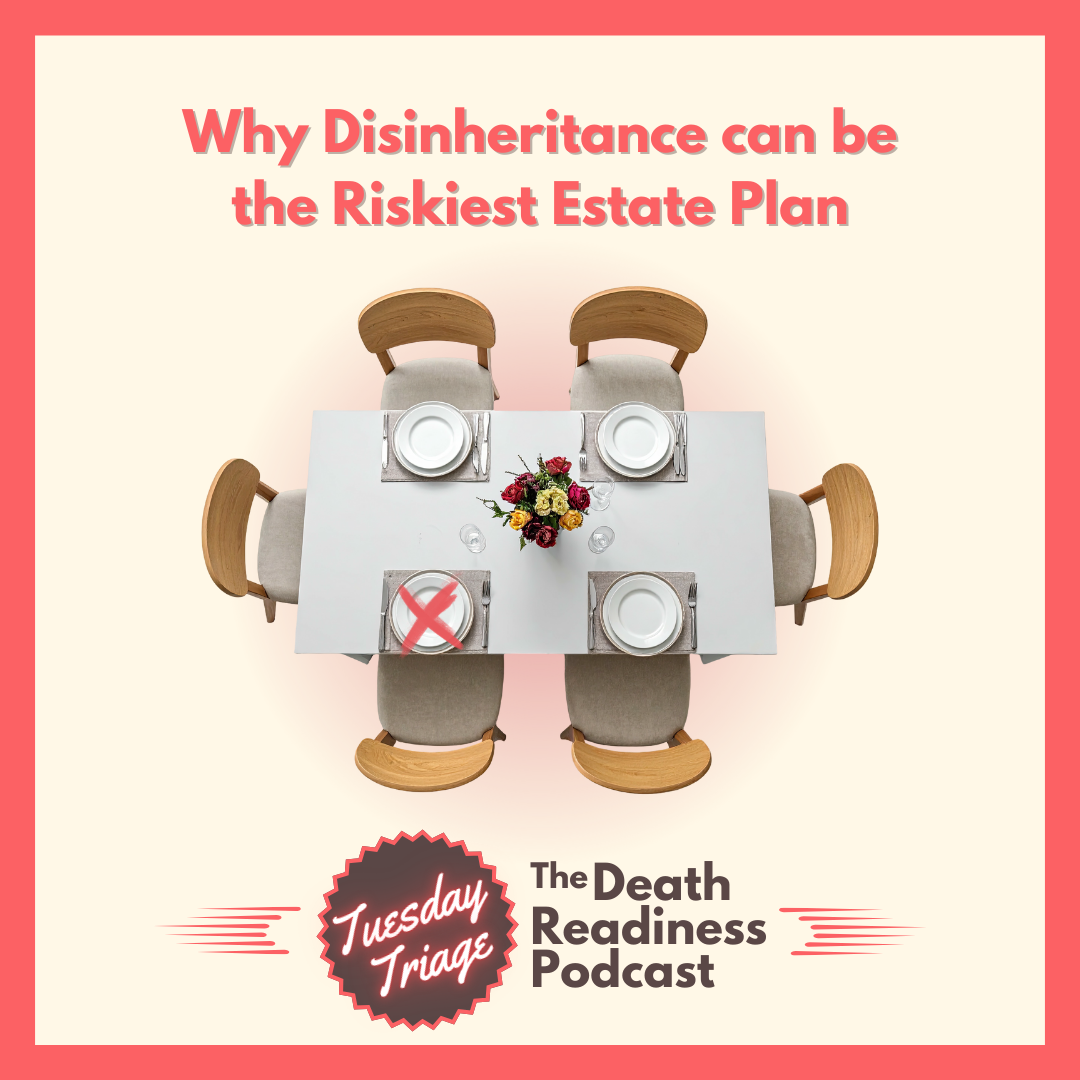Not Your Average Death Blog

What You Need to Know When Justice Feels Out of Reach
What happens when someone is killed by a federal officer—and no criminal investigation follows? In this episode, Jill connects Dr. Martin Luther King, Jr.’s final words to the modern-day death of Renée Good, then walks through the legal doctrines that shape accountability in the United States. You’ll learn how immunity works, why investigations matter, and what legal paths, however limited, may still exist when the system feels silent.

Why Selling the Lake House Can Rewrite Your Will
A listener in Michigan asks what happens when her Will leaves a lake house that she sold years ago. Jill breaks down how Michigan law treats the sale of specifically gifted property, why the gift doesn’t disappear the way it would under traditional ademption rules, and how that one missing update can unintentionally shift millions of dollars and destroy family relationships.

How Business Interests Create Estate Planning Blind Spots
A beautiful estate planning binder doesn’t mean your plan is complete, especially when business interests or stock grants are involved. In this Tuesday Triage episode, Jill Mastroianni unpacks a listener question about distributing a family business in a blended family and uses it to expose one of the most common estate-planning blind spots: assumptions about ownership.
Through real-world examples and practical guidance, Jill walks listeners through how to identify who actually owns a business interest, what that ownership really means, and why these details matter long before a crisis forces the issue.

How Poor Estate Planning Cost a First Lady Her Home
What really happened to the home of President James K. Polk? Jill revisits the fate of Polk Place in Nashville and walks through original deeds, wills, and trust language to explain how a presidential estate plan unraveled over decades. The result is a cautionary tale about life estates, unclear ownership, failed trusts, and how even “well-documented” plans can quietly erase a legacy.

Why You Should Question the Estate Planning Expert
What happens when an estate plan is technically correct—but doesn’t quite work in real life?
In this Tuesday Triage episode, Jill shares a moment from a client meeting where one simple, common-sense question changed an entire estate plan. Through a personal story and a real client scenario, she breaks down the differences between trusts and powers of attorney, and explains why questioning the expert can lead to a plan that actually works when it matters most.
This episode is about trusting your instincts, understanding your options, and remembering that estate planning is supposed to serve real people, not just legal theory.

Why Disinheritance Can Be the Riskiest Estate Plan
As much as we’re sold the idea of “holiday magic,” the reality is that holidays are often where long-standing family tensions come into sharp focus. Especially once you’re the one hosting, coordinating, cooking, cleaning, and trying to keep everyone emotionally regulated. When you’re tired and stretched thin, it’s not uncommon for an unsettling thought to creep in: There’s someone in this family I might need to disinherit.
Disinheritance is usually framed as a decisive solution, a way to protect assets, stop enabling bad behavior, and finally draw a boundary. But in practice, disinheritance is often one of the riskiest estate-planning decisions people make—legally and relationally.

Why Housing Security Gets Overlooked in Blended Families
Many families look stable from the outside—until one illness, one death, or one move changes everything. I see this especially in blended families and long-term relationships where people share a life but not legal ownership of the home they live in.
Today’s Tuesday Triage episode is about this quietly risky situation when someone lives in a home they don’t own. Things go sideways not because anyone has bad intentions, but because the legal protections people assume are there often aren’t.
Today’s question is from a listener named Sarah. Sarah’s dad lives in a condo owned by his long-term partner. They’re committed and they’ve made a life together. But legally, Sarah’s dad has no guaranteed right to stay in that home. If her dad’s partner became ill and needed to move out, or if she died, her father could suddenly find himself without housing. This situation is common in blended families, second relationships, and couples who choose not to marry.

How a Poet Helped Me Face What I Feared
Sometimes a moment arrives at exactly the wrong time and exactly the right time. That’s what happened when I tried to watch Come See Me in the Good Light, the documentary about poet Andrea Gibson’s life and final years. I didn’t get far before I shut it off, not because it was too sad, but because it came too close to something I had been avoiding in my own life.
In 2020, I had surgery to remove thyroid cancer. I’m fine today, and I’m grateful. But being “fine” doesn’t mean you get to stop paying attention. Follow-up scans, biopsies, and check-ins are still part of the deal. But, for the past year, I’ve avoided all of it. I told myself I’d deal with it “soon.” Then months, and then a year, passed.

How to Write Your Own Will (and Why It’s Not as Simple as You Think)
I spend a lot of time thinking about how people avoid estate planning, not because they don’t care, but because they genuinely don’t know where to start. And nothing captures that better than a question I got recently while checking out at Trader Joe’s in Michigan.
A cashier named Ron noticed my Death Readiness sweatshirt and asked the question almost everyone has wondered at some point: “If I want to leave everything to my brother, can I just write it down and sign it?”
The short legal answer, at least in Michigan, is yes. A handwritten Will (called a holographic Will) is valid if it’s dated, signed, and the material portions are in your handwriting. But when it comes to planning for real-life families, real-life assets, and real-life drama, the better answer is: this gets messy fast.

How to Keep Your Ex Out of Your Estate Plan
When you go through a major life change, you think the moment of “finalizing” something will bring a sense of closure. But usually, it doesn’t. When my husband and I bought our house this fall, I was convinced I’d feel relieved the minute we signed the paperwork. Instead, we immediately plunged into the real work—packing, moving, cleaning out the old place, dealing with inspection repairs, and pretending we’d get around to changing the keypad code “tomorrow.” Weeks later, most of that list is still waiting for us. That weird gap between being “done” on paper and nowhere near done in reality is exactly where one of my listeners, Amy from Nashville, finds herself right now.
Amy is newly divorced after ten years of marriage. The court has signed off. The marital dissolution agreement is official. She is, in theory, “legally done.” But like so many people who reach this point, she quickly realized there’s a long list of loose ends that don’t magically handle themselves. One of the questions at the top of her list was: does she need to update her Will to remove her ex-spouse?

Why Your Teen’s Brain Can’t Outrun the Algorithm
There are moments in parenting when you realize the things you once feared for your kids, the monsters under the bed, the shadows in the hallway, have quietly shapeshifted into something much harder to see. I had one of those moments on a long drive home from Nashville, with nothing but the open road, my dog Hopper riding shotgun and a podcast called Left to Their Own Devices to keep me company. I thought it would be background noise. Instead, by the time I pulled into my driveway in Michigan, I knew I needed to share what I learned about the digital dangers inside our kids’ hands, and why protecting them from those dangers is now part of life readiness and death readiness.

When Grief Hits Hard, Our Words Still Matter
Every once in a while, a public moment catches you off guard, not because of the celebrity involved, but because of the raw honesty you hear in their voice.
That’s what happened when I watched Jimmy Kimmel’s recent monologue honoring Cleto Escobedo II, his longtime friend and bandleader. The grief in his voice was palpable. It’s the kind that only comes from losing someone who was woven into the fabric of your life for decades.
I genuinely appreciate that Kimmel brought that vulnerability to the screen. Grief is universal, and when someone with a big platform shows what love and loss really look like, it gives the rest of us permission to feel our own.

How to Stop the Family Camp from Splitting Siblings
If your family has a place—a camp, a cottage, a lake house, or a home that’s held generations of celebrations and chaos—you already know how powerful these spaces can be. They hold childhood summers, late-night conversations, heartbreaks, triumphs, and memories you can still smell and touch if you close your eyes. They’re the backdrop of who you became. And for many families, that place becomes shorthand for legacy. Through my experiences both as an attorney and as someone who spent summers and holidays in a tiny Adirondack lake town, I’ve learned that the places we love most are often the ones that tear families apart.

How to Give Money Without Triggering Gift Tax
As we head into the season of giving, there’s always a moment where generosity bumps up against a familiar question: “Is this going to trigger gift tax?” Most people have heard of the gift tax, but very few understand how it actually works. And nearly everyone assumes it applies far more often than it really does. Before you write a check, Venmo your niece, or help with a tuition bill, it’s worth understanding what the IRS considers a “gift,” which gifts are entirely tax-free, and when you need to file a gift tax return.
This topic landed in my inbox through a listener question from Bethany, an immigration attorney in Washington state. Like many lawyers, she’s become the unofficial “legal help desk” for friends and family. One of those friends, whom we’ll call Becky, wants to write a check to each of her nieces and nephews this year and isn’t sure whether she’ll owe gift tax. It’s a common worry, especially around the holidays, and it’s one that can be cleared up pretty quickly once you know the basics.

Can You Inherit from Someone You Tried to Kill? The Michigan Case that Surprised Everyone
If you spend enough time in trusts and estates, you eventually learn that the law and common sense don’t always travel together. A recent Michigan case illustrates this perfectly, raising a question most people never imagine needing to answer: Can someone inherit from a person they were once accused of trying to kill? It’s an uncomfortable question, and the answer is not what most people expect.
This case centers around a trust created by a man named Donald shortly before his death in 2017. His wife, Elaine, became the sole beneficiary after he died, and their son, Donnie, was next in line. The trustee at the time, Michael, was not a family member but had been named in the trust documents as a future beneficiary after Donnie’s death. Within months, however, the probate court removed Michael as trustee, a notable action that suggested the court had concerns about how the trust was being managed.

The Hidden Tax Traps in Lifetime Gifts
Avoiding the Hidden Tax Trap in Lifetime Gifts
We love the idea of “getting things done.” We declutter, we consolidate, we “get the house out of Mom’s name.” But sometimes, our efforts to simplify make things more complicated, and more expensive, than we ever intended.

How Hosting This Podcast Taught Me to Face Grief
You Can’t Opt Out of Grief
There’s a difference between talking about grief and living it.
My Uncle Charlie passed away at 81 after a short illness. When I first got the call, I didn’t cry. I told my husband what had happened, said I was fine, and went to bed. But the next day, when I saw photos of him on Facebook, the tears came. It was like my brain had finally caught up to my heart.
A few months ago, funeral planner Jamie Sarche joined me on the podcast to talk about why we can’t “opt out” of grief. She told me that people often try to skip the grieving process by skipping the ceremony, doing a direct cremation, keeping busy, or convincing themselves that “getting rid of the body” will make things easier. But grief doesn’t work that way. It waits for you.
When we skip the rituals that come with saying goodbye, we skip a part of healing, too.

How to Talk to Your Parents About Getting Help at Home
If you’ve ever tried to talk to your parents about getting help at home, or moving out of their home, you already know that it’s not an easy conversation. They might tell you they’re “fine.” They might insist they don’t need help. They might even accuse you of trying to take away their independence. Meanwhile, you’re lying awake at night, wondering if they’re safe, if the stove is still on, or if that “little fall” was actually a big warning sign.
These challenges and anxieties are exactly why I wanted to bring Laura Lynn Morrissey, founder of Silver Savvy, onto The Death Readiness Podcast today. She helps families navigate aging and care decisions with less conflict and more problem-solving. We talked about how to start these conversations with your parents early, how to identify the “influencer” in your family, and how to make decisions that protect your parents’ dignity and your peace of mind.
Here are the biggest takeaways.

Why Losing Your Original Will Could Cost Your Family Everything
You’d think “filing” your Will would be simple. But as one listener, Jazmine from New Jersey, found out the hard way, it’s not that simple. She thought she had “filed” her Will with her attorney. When her house was burglarized and her important papers were stolen, she wasn’t worried about her Will. She assumed her attorney still had the original. Except, he didn’t. He’d been disbarred and his law firm no longer existed. And her original Will was gone. So, what does it even mean to “file” a Will? And what happens if yours goes missing?

It Takes a Village
Everyone’s heard the saying, “It takes a village.” And that’s true when it comes to preparing for the practical, emotional, and legal realities of life and loss.
At Death Readiness, we talk a lot about legacy, agency, and love, values and ideals built in community, in the small moments of care and connection that sustain us every day.
Lately, this community has taken on a visible form: fabulous women out in the world rocking their Death Readiness tote bags. You’ll spot them at grocery stores, networking events, school pick-up lines, and courtrooms.